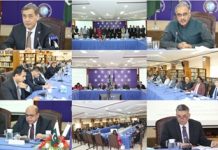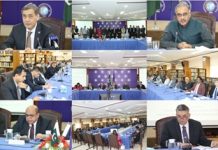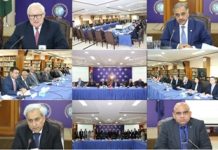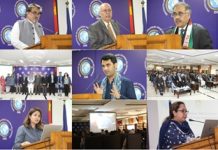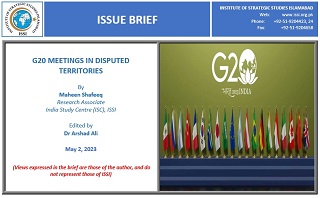The G20 released the calendar of events scheduled for the summit taking place in India and other activities around the world. The calendar included two events envisaged to take place in ‘disputed’ territories – something that has flared up regional tensions again. The first event was a so-called ‘Youth-20’ (Y-20) meeting on 26-28 April in Leh, Ladakh.[1] This is a ‘disputed’ territory and China has already boycotted the meetings in Arunachal Pradesh and Leh. India timed this event in such a manner as to coincide it with completion of three years since the border clashes of May 2020 between India and China in Galwan Valley, Ladakh. The location of the meeting in Leh was approximately 218.6 km from the site of the border skirmishes. The second event on ‘disputed’ territory is the ‘3rd Tourism Working Group’ meeting scheduled for 22-24 May in Srinagar, Indian Occupied Jammu and Kashmir.[2]India has arranged this meeting approximately 142 km from the site of the so-called Balakot ‘strike’ of February 2019, which was befittingly responded to by Pakistan. Clearly, these are provocative actions as India has not only designed to hold these meetings in ‘disputed’ area but also chosen locations close to the site of the latest clashes with both neighbours. By organising these events in close proximity to the Line of Control (LoC) and Line of Actual Control (LAC), New Delhi sought to buttress its illegal control of the areas,[3] but has only managed to stoke further tensions with Pakistan and China.
Pakistan reacted to the provocative Indian move by expressing “strong indignation” at New Delhi for holding the events in disputed territories. The statement by the Pakistan Ministry of Foreign Affairs stressed that the ‘Youth-20’ meeting in Leh and the ‘Tourism Working Group’ meeting in Srinagar were equally disturbing. Such steps underscored India as an irresponsible and irrational state in the region. The statement added that the move was in a total “disregard of the United Nations Security Council resolutions and in violation of the principles of the United Nations Charter and international law. Pakistan vehemently condemns these moves.”[4] Indeed, the move further exposed India’s self-serving agenda and its failure to act as a responsible member of the G20 and the international community.




